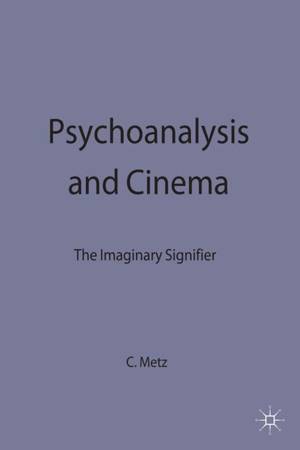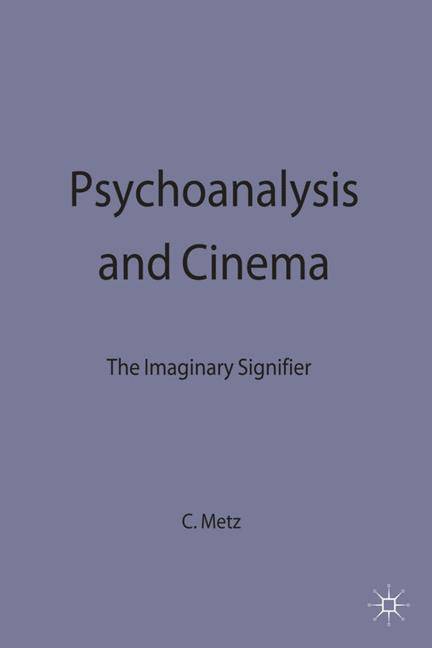
- Retrait gratuit dans votre magasin Club
- 7.000.000 titres dans notre catalogue
- Payer en toute sécurité
- Toujours un magasin près de chez vous
- Retrait gratuit dans votre magasin Club
- 7.000.0000 titres dans notre catalogue
- Payer en toute sécurité
- Toujours un magasin près de chez vous
200,45 €
+ 400 points
Description
Since the publications of his first essays in the early 1960s Christian Metz has produced a body of work that has established him as the most influential contemporary theorist of cinema and as a leading contributor to the development of semiotics generally. Psychoanalysis and Cinema: The Imaginary Signifier is in many ways a culmination of this work. In the first half of the book Metz explores a number of aspects of the psychological anchoring of cinema as a social institution, using Freudian psychoanalysis to examine the nature of cinematic spectatorship, the relations of cinema and voyeurism, fetishism and so on. In the second half, he shifts his approach a little to look at the operations of meaning in the film text, at the figures of image and sound concatenation. Thus he is led to consideration of metaphor and metonymy in film, this involving a detailed account of these two figures as they appear in psychoanalysis and linguistics - an account which brilliantly disentangles the various analogies that have been proposed between metaphor and metonymy, condensation and displacement, paradigm and syntagm, and makes an important contribution to our general understanding of these issues as well as to our particular understanding of cinema. Throughout, the book is an argument with and recasting of initial semiotic thinking dependent on reference to fixed linguistics models; it offers something of a 'second semiotics', concerned now with the institution of modes of subjectivity, cinema as imaginary signifier, and with the movement and effects of meaning, film as text.
Spécifications
Parties prenantes
- Auteur(s) :
- Editeur:
Contenu
- Nombre de pages :
- 327
- Langue:
- Anglais
- Collection :
Caractéristiques
- EAN:
- 9780333278055
- Format:
- Livre relié
- Dimensions :
- 210 mm x 297 mm
- Poids :
- 581 g

Les avis
Nous publions uniquement les avis qui respectent les conditions requises. Consultez nos conditions pour les avis.






